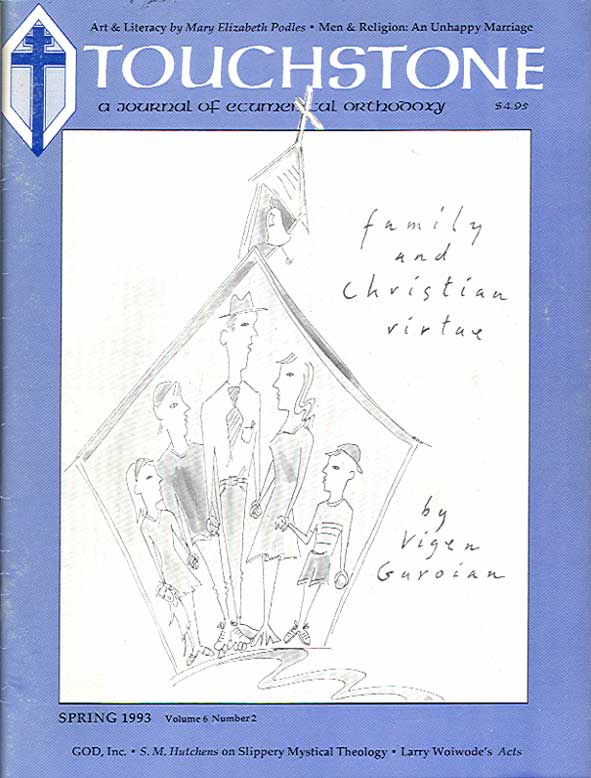Mystical Theology & the Sublimation of Gender
Suppose an ecstatic lover (voluble but sincere) were to tell his beloved, “Darling, my love for you surpasses the bounds of human understanding—in fact, the strength of my affection is of such transcendent intensity that ‘love’ as used in human discourse does not suffice to describe my feelings for you.” Suppose then she snorted back, “You see there, I knew it all along—you don’t really love me at all!” Would she not have inferred the very antithesis of what he meant? Similarly, what are we to make of the claim that ecstatic theology’s insistence that human thoughts and words cannot contain or describe God means that the words and thoughts we apply to him must be denials of the reality for which they stand? Let us think that here, too, something has gone far wrong.
In his response to my article “God, Gender and the Pastoral Office,” Steven L. Foster, serenely inspecting a field of battle his knowledge of mysticism and semantic philosophy allows him to remain above, suggests that I consign the mystical tradition to heresy and dally with idolatry by defining God within the confines of patriarchy. This, indeed, is one of the principal charges leveled these days against those who defend the Christian tradition in these matters: We do not understand the way in which what is unutterable—here, the relation of God to gender—does away with the merely utterable—such as the gender aspect of titles like “Father” and “Son.” Since we fail to perceive how gender terms cannot be applied to God as he truly is, naturally we fail to grasp the deeper things of the doctrine of the ministry, where in like manner the law of gender distinction is allegedly to be relativized by the gospel of sexual equality.
While he does not confess full agreement with Thomas Torrance’s argument for women’s ordination [from “The Minstry of Women,” in the same issue], Foster apparently concurs with this part of it.
Any images taken from creaturely being such as “father” and “son” have to be understood in a diaphanous or “see-through” way . . . in such a way that the creaturely relations they express in ordinary mundane usage are not projected into Deity. When used theologically they are forms of thought and speech that refer to truth independent of themselves . . . . (p. 9).
THIS ARTICLE ONLY AVAILABLE TO SUBSCRIBERS.
FOR QUICK ACCESS:
S. M. Hutchens is a senior editor and longtime writer for Touchstone.
subscription options
Order
Print/Online Subscription

Get six issues (one year) of Touchstone PLUS full online access including pdf downloads for only $39.95. That's only $3.34 per month!
Order
Online Only
Subscription

Get a one-year full-access subscription to the Touchstone online archives for only $19.95. That's only $1.66 per month!
bulk subscriptions
Order Touchstone subscriptions in bulk and save $10 per sub! Each subscription includes 6 issues of Touchstone plus full online access to touchstonemag.com—including archives, videos, and pdf downloads of recent issues for only $29.95 each! Great for churches or study groups.
Transactions will be processed on a secure server.
more from the online archives
calling all readers
Please Donate
"There are magazines worth reading but few worth saving . . . Touchstone is just such a magazine."
—Alice von Hildebrand
"Here we do not concede one square millimeter of territory to falsehood, folly, contemporary sentimentality, or fashion. We speak the truth, and let God be our judge. . . . Touchstone is the one committedly Christian conservative journal."
—Anthony Esolen, Touchstone senior editor










